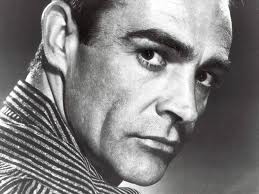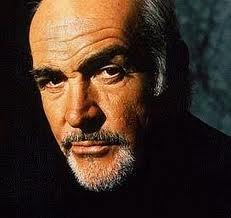I was lucky enough to get an Advanced Reader Copy of Chip and Dan Heath’s new book, DECISIVE: How to make better choices in Life and Work. You may know the Heath brothers from their previous books, SWITCH: How to Change Things When Change is Hard and MADE TO STICK: Why Some Ideas Survive and Others Die. They are adept at taking massive amounts of research on topics with widespread appeal and distilling the information into something that can be used in daily life. In DECISIVE, they discuss decision-making and make it practical. Here, I have applied many of their ideas in a simple checklist: What manuscript should you write next?
Courtesy of the Heath Brothers amazing insights into the applicability of much research, these are practical ideas to help you make the best decision possible. If you want to know more, DECISIVE will be released on March 26, available now for pre-order.
You just wrote, “The End.” And you hit the SEND button. The manuscript is off to the editor.
What now? How do you decide on the next project?
Build a Career
An agent once asked this question: What is the next logical book for you in terms of building an audience that will support your career?
Do you see the criteria embedded in that question:
- Build an audience
- Support your career
Is that what you want? A career with a growing audience? Then, you probably need to stick with the genre of your first book, and turn out a second book that will appeal to the same audience. If you wrote a mystery and it sold well, write another mystery—different, better, but definitely appealing to the same audience.
But it may not be that easy. Maybe several genres interest you and you want to try something new. But that might risk your career, because you aren’t building a consistent following. How do you sort out all your ideas and commit to the next project? Here are 15 questions to ask yourself.
15 What Next Questions
- Don’t Get Trapped in Too Small a Framework. The decision is rarely one like this: Should I do Mss A or not? Instead, try to look at a range of options. Here are ideas that I have, A, B, C, D, and E. Which of these would appeal to the same audience as my first success?
- What else you could write in the same time period. If it takes you six months to write a novel, what else could you get written in that time period? What project deserves that time commitment?
- What if you couldn’t write the Mss you had planned to write next? What would you write then? For example, if you were planning a picture book biography of Shirley Temple and one was just published to great acclaim, maybe it’s not the best time for this story. So, pretend something similar just happened to your pet idea. What would you do then?

- Could you write the openings of several different manuscripts and THEN decide which one excites you the most? Multi-tracking sometimes allows the cream to rise.
- Look at the career of someone you admire and want to emulate. At a similar point in his/her career what was the next book published? Or, look at a musician or actor/actress and find parallels in their careers. For example, Sean Connery could have gotten stuck in the 007 role and never found his way to new projects. Instead, he has regularly “reinvented” himself by taking risky roles that led to an expanded career. Is it time for you to write that “breakout” book you’ve been planning?


- Looking over all the possible manuscripts and ideas—what has you the most excited? Which one are you scared to write—and therefore, will push you to write your best?
- Ask the opposite question: if you have been writing mysteries, what if your next novel was a romance? Is this the time to make a switch or not? Can you carry any of your audience over to a new genre? Is there a way to work more romance into your next mystery, so the transition isn’t total, but pulls in readers from both genres?
- Could you test new waters with a short story or a short ebook? Is there a way to TRY something new, without doing damage to your current audience? Once you decide on a new mss, you’ll have to commit wholeheartedly to write the best possible. But maybe you can take a couple weeks and try out a new market.
- Are you too attached to the status-quo? Your publisher wants more and more of this one type story and you get paid. But somehow, you feel your passions are lessened. At what point do you need to shake up the status quo?
- What would you tell your best writer friend to do in this situation?
- What are you passionate about? What are your core values? Does Mss A or B or C or D allow you to express that passion better?
- If you write this book and a year from now it fails(either not published or published to poor reviews), can you think why it would have failed to reach your audience?
- If you write this book and it succeeds, can you discuss why it would make your readers excited about your work?
- Do you set goals for your books? If this mystery doesn’t sell 10,000 copies, then I’ll try a different genre for my next project. Would a goal like that help you make the next career move?
- Are there deadlines for this project, or can you create a deadline? You’ll devote six months to this fantasy story, and then, you must write your next mystery.
You have a choice to make and the choice will affect your future and your career as a writer. What will you write next? There are no right or wrong answers, only answers that please you. You’re in control. I know–that’s scary! But that’s another post.
Hey, Chip and Dan–What will YOU write next?
This is a great checklist, and well-timed as I will be finishing a big project this week and next steps have definitely been on my mind. Thanks.